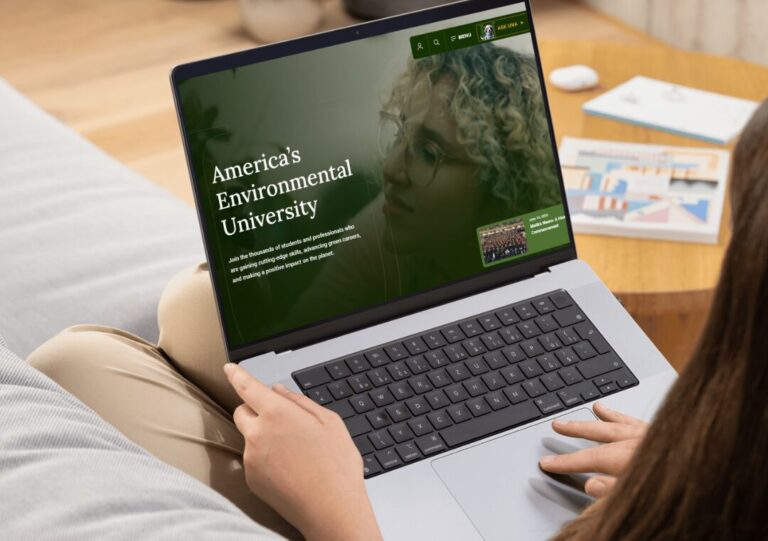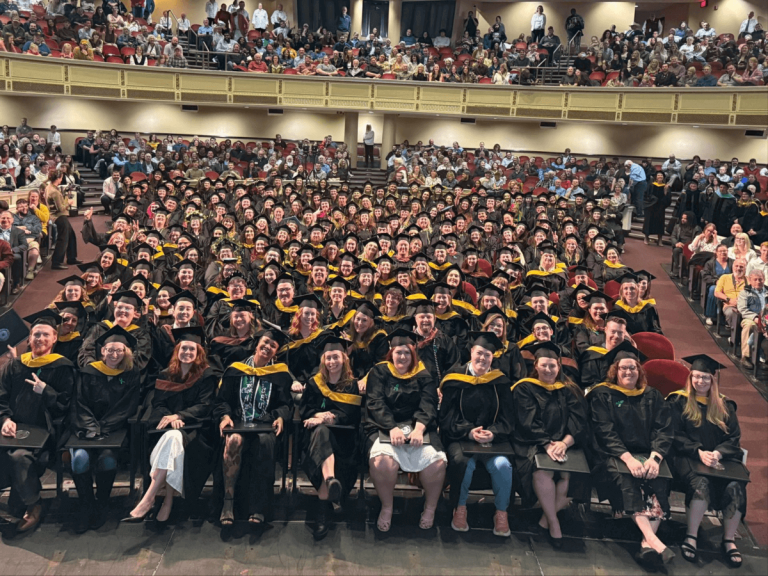Last month, world-renowned small-scale organic farmer Eliot Coleman and his wife, professional horticulturist, author, and MOFGA board member Barbara Damrosch, opened their Four Season Farm in Harborside, Maine to visitors from Unity College. The group included Unity students, Director of the Center for Sustainability and Global Change/Professor of Sustainable Agriculture Doug Fox, Unity College Instructor Jean English and Sara Trunzo, Unity College Farm + Food Projects Coordinator.
Unity College’s agriculture and horticulture-related courses have long used Coleman’s books as instructive texts and his theories as the basis for season-extension experiments on campus, however Fox’s students had not made a visit to the farm since the 1990s. With the addition of a Sustainable Agriculture degree program and Unity’s increase in agricultural programming (Veggies For All, animal initiatives, greenhouse), it was time to return for a refresher and establish a closer connection to the topics the Unity students have been studying.
On the day that the group visited the farm, Coleman and Damrosch offered their enthusiasm and insight, the group spending the day touring Four Seasons Farm and learning about various methods and tools that Coleman has developed over the decades.
Unity College instructor Jean English noticed that Coleman and Damrosch seemed genuinely interested in the Unity students’ desire to create their own enterprises some day.
In her April 17, 2013 column in the Washington Post, Damrosch wrote about the Unity students’ visit to the Four Season Farm, offering her impressions of what she gleaned from them as to why the future of food is of great importance to the next generation of food system workers.
English recalled that a “chore” of removing rocks from some of Coleman’s fields turned out to be a valuable question and answer period between the Unity College students and Coleman, giving insight to the students and, as importantly, information on farming that they are likely to call upon in the future.
“This was one of those perfect days. A fantastic group of Unity students interacting with two great growers, collecting lots of creative ideas and enthusiasm that they might use in their own enterprises someday, and sharing their own interests with Eliot and Barbara,” said English.
Students were able to witness small, organic, sustainable farming ideas and practices actually being put into use.
Student Marina Theberge said that spending time at the Coleman/Damrosch farm taught her a lot and she appreciated the stories that were shared. Theberge felt that what she learned from the visit was inspirational and she is eager to continue her own pursuit of sustainable agriculture.
“It was early spring when we visited and though the fields were not full of vegetation, there was still a lot to be seen. Eliot Coleman was eager to give us a tour of the farm, showing us prepared soil beds, greens-filled greenhouses, tools used on the farm, and many chickens. With every step we took, he had something to teach us and we listened eagerly,” said Theberge. “Everything was very neat and tidy which was very appealing to the eye. After the tour they both invited us in for lunch and discussion. I liked hearing their stories and insights concerning farming. They were inspirational and I am glad to have had the opportunity to visit their farm and experience their way of living.”
Director of the Center for Sustainability and Professor of Sustainable Agriculture Doug Fox felt that Coleman showed a genuine interest in offering the Unity students ideas for how they can make positive impacts on our food system, and was also interested in the students’ input and suggestions on their suggestions for intelligent farming practices.
“Eliot Coleman is both an organic farmer and an inventor, and he is constantly looking for ways to improve sustainable farming processes, whether by inventing a new tool, creating a low waste transplant system or finding practical ways to extend the growing season,” said Fox. “He is the model of someone who is always thinking of how to do things more efficiently and intelligently. I observed that some of his farming methods really resonated with the group and that they might like to incorporate his ideas into their own practices one day. He was very engaging with our students.”
Unity College Farm + Food Projects Coordinator Sara Trunzo pointed out that the Unity students were particularly interested in how Coleman has turned himself into a hybrid of inventor/writer/farmer, utilizing his various resources in order to maintain his farm with integrity. She felt that his role modeling is of great benefit for the upcoming wave of sustainable organic farmers. Trunzo also noted that the visit was right in line with Coleman and Damrosch’s plans to ensure that small scale, sustainable organic farming continues be relevant for the next generation.
“Eliot Coleman is an invaluable resource for aspiring food system professionals and is a nationally recognized, go-to person for organic small farming,” said Trunzo. “He and Barbara were incredibly generous with their time and reflections and were interested in hearing the students’ thoughts on sustainable agriculture, advocacy, and community. They made us so welcome.“
In recent years Unity College has gained national attention for a variety of achievements including its focus on sustainability science, the leading-edge of 21st century ecological problem solving and the vanguard in the fight for the mitigation of global climate change; its ground-breaking “green” innovations such as the award-winning TerraHaus, the first student residence on a college or university campus built to the Passive House standard, the most energy efficient building standard in the world; and for being the first college in the United States to divest from investments in fossil fuels, igniting a growing national movement in higher education.
Unity College is a private college in rural Maine that provides dedicated, engaged students with a liberal arts education that emphasizes the environment and natural resources. Unity College graduates are prepared to be environmental stewards, effective leaders, and responsible citizens through active learning experiences within a supportive community.



